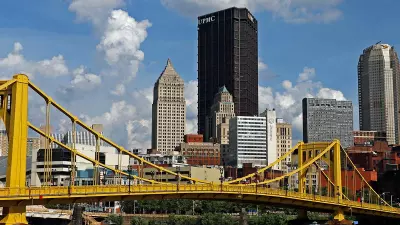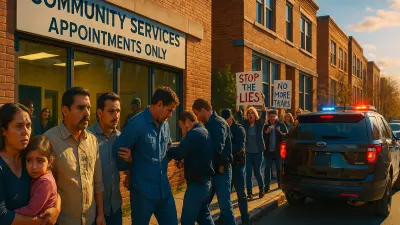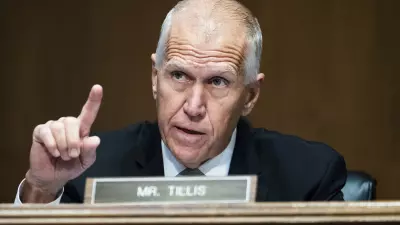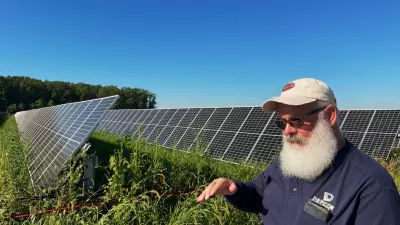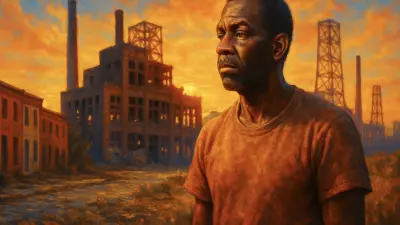International cooperation and trusting collaboration are the cornerstones to defend the fundamental values of our democracy and to be prepared for upcoming challenges.

Dortmund and Pittsburgh are two Postindustrial cities that have experienced similar and profound changes in the last few decades.
Each city hit rock bottom in the 1980s and 90s after suffering structural change, loss of prosperity and the decline of coal and steel production, leading to unemployment at 18% in the early 1980s in Pittsburgh, and in Dortmund, a city of about 600,000 in Germany’s Rhine-Westphalia region. The economy of both regions was long anchored in manufacturing.
The unemployment rate is about 12% in Dortmund and 8% in Pittsburgh, according to recent figures. It’s important to continue a downward trend despite the additional unemployment and loss of economic agency challenges brought on by the pandemic.
The challenges we have faced in the past few years have been both old and new, but cooperation and collaboration are critical to moving forward.
The inauguration of Joe Biden as 46th president of the U.S. gives hope that division, anti-democratic tendencies and demagogy will no longer be breeding grounds for the drifting apart of societies. The new U.S. administration and the Democratic majorities in the Senate and House of Representatives will deal intensely with this division within American society. This division is felt throughout Germany and Europe as well, as the sting of frustration and aggression runs deep in parts of society.
This sting felt by nations must be removed, and the challenges we experience nationally and globally are often best addressed through engagement, policy, and cooperation on the local level.
As representatives of local government, we have both the opportunity and responsibility to work directly with our residents on the grassroots level to listen to them, hear them and create inclusive policies to meet their needs. Our citizens are in a critical global moment of need and want to be addressed directly by their local representatives in urban and rural municipalities.
Dortmund and Pittsburgh are two Postindustrial cities that have experienced similar and profound changes in the last few decades.
Local government provides the opportunity for direct engagement and evaluation of the actions of city leaders, which can be a blessing and a curse for mayors. We are united by the similar challenges we face every day in cities around the globe in order to further develop our communities: fighting pandemics, migration, digitalization, transforming mobility, unemployment, structural change and climate protection. The list could go on and on.
Mayors worldwide come together to share information and experiences. They exchange, adapt, test and implement ideas and constantly put their work to the test. Feedback from the citizens is given to us directly – sometimes right in front of city hall when leaving the office.
Mayors maintain long-standing relationships with foreign counterparts worldwide since they share a spirit of “doing things locally.” The connection between cities stays intact even when communication between two states breaks down. It is resilient, especially when fundamental democratic values are neglected.
If the transatlantic relationship is to be consolidated, U.S. and German foreign policy must add another tool to their diplomatic toolbox with the help of cities: urban diplomacy. It will be indispensable for the future transformation and orientation of foreign policy.
The governments of both countries must therefore immediately take the opportunity to draw on resilient structures of cities and their networks in the U.S. and Germany.
Beyond the more than 200 sister city arrangements between Germany and the U.S., working together also means integrating all of the numerous joint projects between cities in the fields of business, science, education, sports and culture and always prioritizing the global challenges that connect local governments worldwide.
Together, we preserve the idea of democracy. We are international cities of neighbors.
We should use the opportunity this year to develop a permanent format to integrate city leaders into the political process together with both national governments: A German-American Mayors’ Forum dedicated to the issues of tackling the pandemic, sustainable urban development, economic development and climate protection. It is particularly useful as the U.S. has rejoined the Paris Climate Agreement and we urgently address issues in preparation for the UN Climate Change Conference in Glasgow this November.
International cooperation is more important than ever, and if there is an opportunity to reform the United Nations, it can only be taken together with the cities.
The administrations of Dortmund and Pittsburgh have already taken measures in preparation for the future of urban diplomacy in terms of personnel: we hired resilience managers, established a chief innovation & information offices and expanded our international relations team.
Pittsburgh and Dortmund share a mentality of always building back better. We tackle challenges, we are pragmatic, and we consciously incorporate our history and our heritage into future sustainable urban development.
We do all this together with the people. We want diversity to thrive. We are both cities of neighborhoods and neighbors – we know each other in the city, we trust each other, we help each other. We are in solidarity. That is the strength of cities and it must also be the strength of countries.
Today, we are strong science hubs with universities and research institutions, lively start-up scenes, world market leaders from various industries and expertise in future technologies. People are attracted to our cities and drawn to our quality of life. It is therefore our duty to follow the path of strengthening diplomacy, friendship and neighborliness across the Atlantic.
Together, we preserve the idea of democracy. We are international cities of neighbors.

